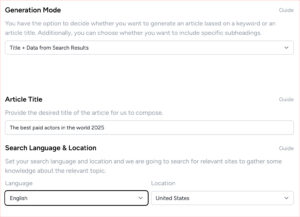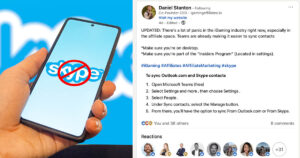Does anyone really know the best length for a blog post or article? Is there a set standard for what determines great SEO content length or an ideal word count?
Despite many specialists implying that text should be a certain length and contain a particular keyword density to rank well in search engine results, does it actually have any measurable impact?
Here at Topcontent, we believe that there are multiple factors in play. These include the critical elements of creating awesomely valuable content, your SEO keyword research strategy and your target audience. However, in an increasingly competitive market, it’s certainly worth taking a close look at developments for 2020.
Are longer posts actually more effective?
Balancing the assumption that longer is better with the well-known fact that most people want information quickly, is it possible that there is a middle ground? Current long-form content studies do show that articles over 1000 words are shared more frequently, and top-ranking content is generally around 1800 words. Does this mean this is the ideal SEO content length?
Unfortunately, it may not be this simple. Studies also show that organic traffic decreases when content is over 2500 words, yet it also performs the best for social sharing and backlinks. Both of these factors can influence Google ranking, but we may also want to see an increase in organic traffic for sales. Shorter content pieces tend to work better for this and also have their own place for people searching for specific answers to their questions.
The ideal post length should depend on your goals
So, the inference is that the perfect SEO content length is not always set in stone, with SEO experts producing conflicting reports and ideas. What they do show is that different article or blog lengths perform differently and that the optimum word count should depend entirely on your unique strategy and set goals.
These might be:
- Upping your general SEO rankings
- Improving your conversion rate
- Increasing your brand awareness
- Boosting your market positioning
- Building authority in your niche
Focus on user intent and creative quality
Whenever you are producing SEO content, it’s essential to come back to the basics of user quality and relevance. It can be all too easy to focus on Google algorithms to generate traffic, meaning a heavy focus on word count or keyword density. The primary objective should always be to provide value, information and answers for your visitors. Along with this comes the requirement for a clear focus on user intent and what your customers need and want. Google’s algorithms like the Hummingbird are focussed on the context and reasoning behind specific searches, so you should be too!
Determining the SEO content length for your visitors
Any great SEO strategy should include a process to establish what your existing and target audiences are looking for and how they search. This will include effective research and familiarising with content marketing statistics, which can also help you establish the best post length for your site. User intent is key to gaining insight into their intention when using particular search terms. It also allows you to narrow your keyword list and identify new ones.
So before jumping into conclusions about the ideal length for your content, make sure to follow these steps:
Step 1: Conduct in-depth research
Step 2: Identify your SEO content goals
Step 3: Match the purpose to article length
Step 4: Choose the best SEO keywords
Step 5: Add customer value to posts
Step 6: Constantly analyse search performance
Now it’s the time to create your content. However, the ideal length of your content will highly depend on the purpose of the text.
Ideal length of landing page is around 1500 words

Best blog length is over 1000 words (but you can succeed with 300-600 word posts as well)
According to many studies on the latest Google algorithms, the best blog length is over 1000 words. These typically do better on rankings, but general blog posts should certainly have 300 or more words. Having said that, super short blogs of 75 to 300 words are useful for generating discussion, if that’s your objective. Many blogging experts suggest that anywhere between 300 and 600 words is the general SEO content length. In short, it again depends on what you are trying to achieve, but 300+ words will undoubtedly keep your blog away from being considered ‘thin content’.
Product descriptions should be informative 75-150 words
This will depend very much on your product, but a short, clean product description will tend to include more content words than grammatical fillers. Most SEO experts agree that a short product description of 75 to 150 well-chosen words is the best option for most items. However, although concise descriptions look good, you may have a product that takes more words to adequately describe it. In the case of expensive products or lesser-known brands, customers can be enticed to convert with a longer, more detailed description.
Category descriptions should include all relevant information
Again, this will very much depend on your services, products and user intent, but the length will have minimal impact on your Google rankings. Choose to describe your range of products as succinctly as you can, but include all the relevant information. Whether you are describing a range of paints or the latest catwalk fashion range, the content length of your descriptions should reflect what you want to convey to your customers. Any great category page will be filled with useful, relevant information to help customers connect with your business and make informed choices.
Adding engaging value to your posts
In summary, SEO content length will always be an important factor to consider. However, while taking expert opinions into account, it will very much depend on exactly what you are trying to achieve. Above all, posting quality content remains the primary focus of Google, and this should be your main objective. Great articles and creative, relevant content will always give you the upper hand and win new customers.
You can add value to website content by using some of these ideas to produce an outstanding result:
- Post images of your products in the making
- Introduce new concepts ahead of your competitors
- Use infographics or other custom graphics
- Create interesting case studies
- Post a video to go alongside your article
- Showcase your customers and let them speak
- Include a “Frequently Asked Questions” section
- Engage readers with your blog format
- Add funny GIFs or inspirational ideas
- Ask your customers questions
- Share industry and company news
- Include quotes from relevant experts
- Use quizzes or calculators for interactive content
- Include “top 5” and “top 10” listsicles
If you are looking to improve your site’s performance, no need to look further. Here at Topcontent we offer professional content writing services, and we can take care of content requests of any length – short or long. Our services include landing page creation, blog writing services as well as category and product description writing service.
Best part is, you can buy content online! Place your content order right away, or contact us for a free quote.





